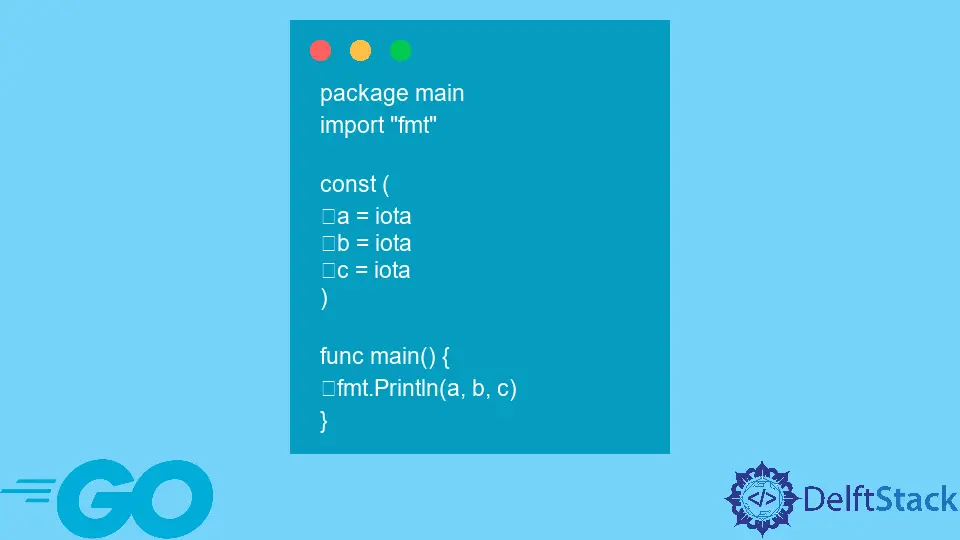Enumerator in Go
- Understanding Enums in Go
- Using Stringer Interface for Enum Representation
- Using Enums with Switch Statements
- Conclusion
- FAQ

Enums, or enumerated types, are a common feature in many programming languages, providing a way to define a variable that can hold a set of predefined constants. In Go, there isn’t a built-in enum type like in other languages, but you can represent enums idiomatically using constants and iota.
This tutorial will guide you through the process of creating enums in Go, showcasing how to leverage these features effectively. By the end, you will have a solid understanding of how to implement enums in your Go applications, enhancing your code’s readability and maintainability.
Understanding Enums in Go
In Go, enums are typically represented using a combination of constants and the iota identifier. The iota is a predeclared identifier that can be used in a constant declaration to create a sequence of related constants. This approach allows for a clean and efficient way to define enums without the need for complex structures or additional libraries.
Here’s a simple example of how to create an enum for days of the week:
package main
import (
"fmt"
)
type Day int
const (
Sunday Day = iota
Monday
Tuesday
Wednesday
Thursday
Friday
Saturday
)
func main() {
today := Wednesday
fmt.Println("Today is:", today)
}
Output:
Today is: 3
In this code, we define a type Day as an integer, and then we use const along with iota to create a series of constants representing the days of the week. When we print today, it outputs 3, since Wednesday corresponds to the third value in the sequence starting from zero.
Using Stringer Interface for Enum Representation
One of the best practices when working with enums in Go is to implement the Stringer interface. This allows for a more human-readable output of the enum values. By defining a String() method for our enum type, we can return the string representation of each enum value.
Here’s how you can do that:
package main
import (
"fmt"
)
type Day int
const (
Sunday Day = iota
Monday
Tuesday
Wednesday
Thursday
Friday
Saturday
)
func (d Day) String() string {
return [...]string{"Sunday", "Monday", "Tuesday", "Wednesday", "Thursday", "Friday", "Saturday"}[d]
}
func main() {
today := Wednesday
fmt.Println("Today is:", today)
}
Output:
Today is: Wednesday
In this example, we added a String() method to the Day type. This method returns the name of the day as a string by indexing into a string array. Now, when we print today, it outputs Wednesday, making the output much clearer and more meaningful.
Using Enums with Switch Statements
Enums shine in Go when used with switch statements, allowing for cleaner and more readable code. This is particularly useful when you need to perform different actions based on the enum value.
Here’s an example that demonstrates this:
package main
import (
"fmt"
)
type Day int
const (
Sunday Day = iota
Monday
Tuesday
Wednesday
Thursday
Friday
Saturday
)
func getDayActivity(d Day) string {
switch d {
case Sunday:
return "Rest and recharge."
case Monday:
return "Start the week strong!"
case Tuesday:
return "Keep the momentum going."
case Wednesday:
return "Midweek check-in."
case Thursday:
return "Almost there!"
case Friday:
return "Finish strong!"
case Saturday:
return "Time to relax!"
default:
return "Unknown day."
}
}
func main() {
today := Friday
fmt.Println("Today's activity:", getDayActivity(today))
}
Output:
Today's activity: Finish strong!
In this code, we define a function getDayActivity that takes a Day enum as an argument and returns a corresponding activity. The switch statement makes it easy to handle each day distinctly, providing a clear structure for defining behavior based on the enum value. When we call this function with today set to Friday, it outputs “Finish strong!”, demonstrating how enums can streamline decision-making in your code.
Conclusion
Enums in Go are a powerful feature that can enhance the clarity and maintainability of your code. By using constants and iota, you can create idiomatic enums that are both efficient and easy to read. Implementing the Stringer interface further improves the usability of your enums, allowing for clearer output. Finally, using enums with switch statements can lead to cleaner and more organized code. With these techniques, you can effectively utilize enums in your Go applications, making your codebase more robust and understandable.
FAQ
-
What are enums in Go?
Enums in Go are represented using constants and the iota identifier, allowing you to define a variable that can hold a set of predefined constants. -
How do I implement the Stringer interface for enums in Go?
You can implement the Stringer interface by defining a String() method for your enum type that returns the string representation of each enum value. -
Can I use enums in switch statements in Go?
Yes, enums work well with switch statements, making it easy to handle different cases based on the enum value. -
Are there any third-party libraries for enums in Go?
While Go does not have built-in support for enums, you can find various third-party libraries that provide additional functionality, but using constants and iota is the idiomatic way. -
How can I improve the readability of my enums in Go?
Implementing the Stringer interface and using descriptive names for your constants can significantly enhance the readability of your enums.